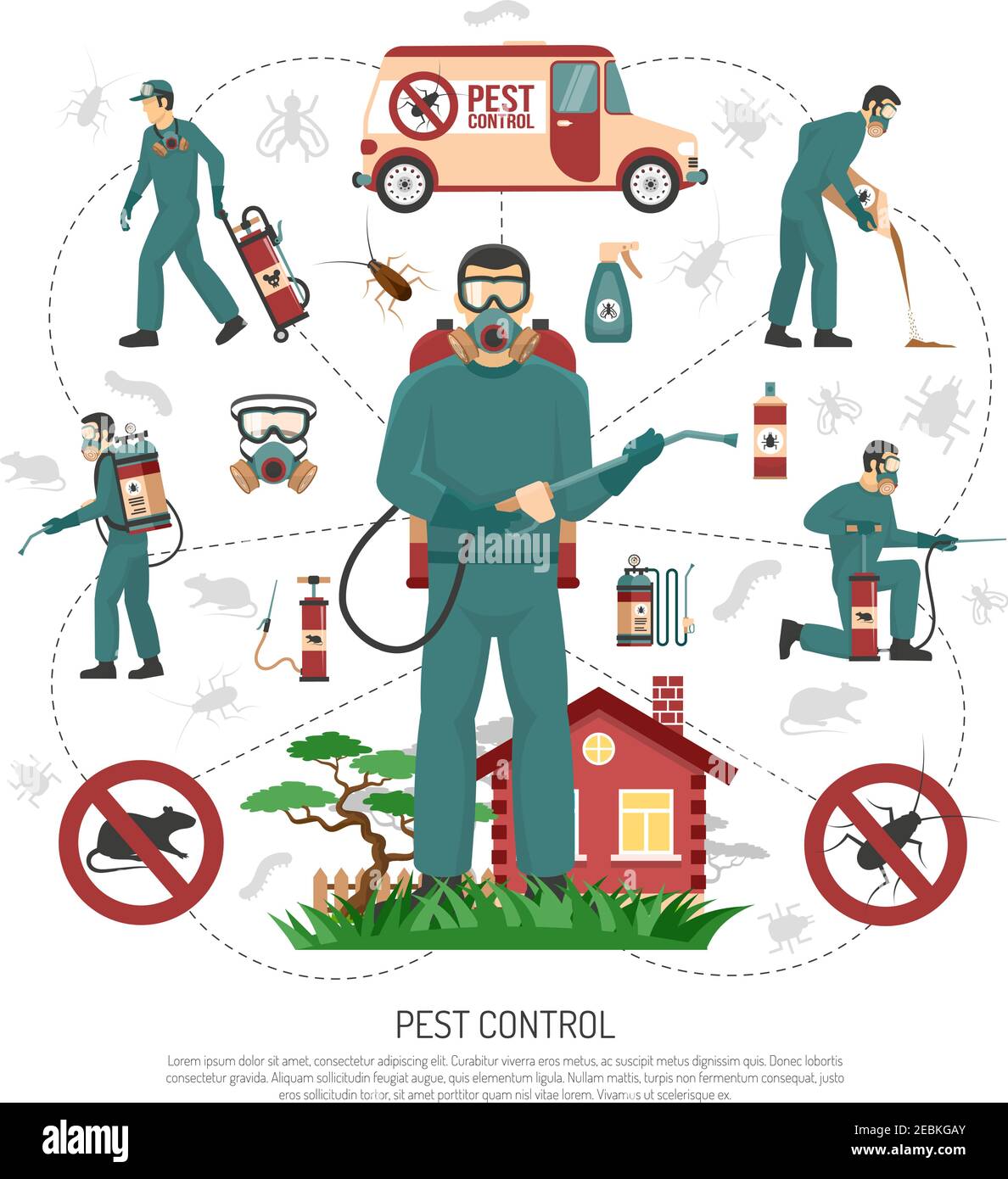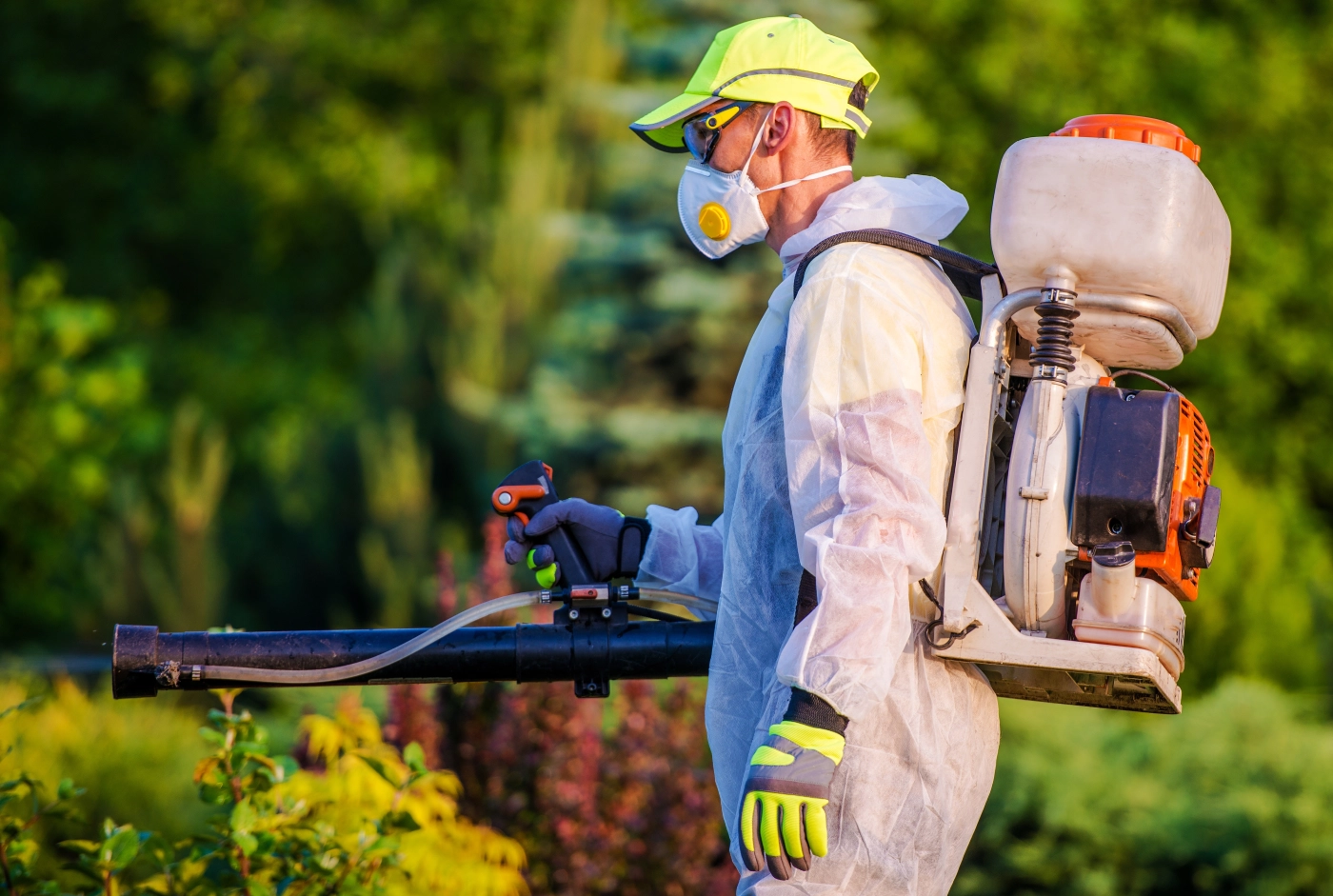Say Goodbye to Vermin: Pest Control Clovis Experts at Your Solution
Wiki Article
Recognizing the Various Methods to Pest Control: A Comprehensive Overview

All-natural Pest Control Approaches
Employing eco-friendly techniques such as buddy planting and organic parasite control is necessary for properly taking care of pests in farming settings. Buddy planting involves expanding different plants in distance to deter insects, improve nutrient uptake, and boost general plant health and wellness. For instance, growing marigolds alongside tomatoes can assist ward off nematodes. Similarly, intercropping maize with legumes can interfere with the breeding patterns of parasites like corn borers.Biological bug control includes introducing natural killers or pathogens to manage pest populaces. Ladybugs, as an example, eat aphids, controlling their numbers without the demand for chemical pesticides. One more instance is using Bacillus thuringiensis (Bt), a bacterium that targets details insect parasites while being harmless to people, pets, and beneficial bugs.
These environmentally friendly techniques not only minimize the dependence on synthetic chemicals yet also help maintain biodiversity and soil health and wellness. By incorporating natural bug control methods into agricultural practices, farmers can attain sustainable insect management while decreasing negative effect on the atmosphere.

Chemical Bug Control Solutions
In addition to all-natural pest control methods, the use of chemical parasite control services plays a significant function in properly managing pest populations in farming environments. Chemical parasite control remedies are created to target details parasites that may create comprehensive damages to plants. These options usually include synthetic pesticides that are developed to eradicate insects swiftly and effectively.One of the crucial benefits of chemical bug control solutions is their effectiveness in controlling pest infestations on a big range. Farmers can use these options using various methods such as splashing, airing out, or seed therapy to shield their crops from unsafe insects, weeds, and conditions. Additionally, chemical insect control remedies are fairly easy to apply and can give rapid results, assisting farmers secure their returns and lessen financial losses.
However, it is necessary to utilize chemical parasite control options sensibly to decrease possible negative influence on the atmosphere, non-target organisms, and human health and wellness. Appropriate application techniques, adherence to safety standards, and routine monitoring are important to make sure the accountable use chemical bug control remedies in farming techniques.
Organic Parasite Control Approaches
Organic pest control comes close to leverage all-natural predators or pathogens to handle parasite populations in agricultural setups properly. One usual organic control technique is the intro of natural adversaries, such as ladybugs or parasitic wasps, to target particular bugs.One more organic control approach involves utilizing pathogens like germs, fungis, or infections to contaminate and kill parasites. These microbial representatives can be splashed on plants or presented into the soil to battle different bugs without go to the website damaging beneficial insects or various other wildlife. In addition, the usage of scents to disrupt the breeding patterns of pests is another effective biological control strategy. By hindering their recreation, this approach assists to minimize parasite populations without the demand for chemical treatment. On the whole, organic parasite control methods provide a lasting and targeted service to pest monitoring in agriculture.
Integrated Insect Administration (IPM)
Integrated Insect Monitoring (IPM) is a detailed strategy that integrates various parasite control strategies to successfully manage and reduce pest populaces in agricultural systems. IPM concentrates on lasting prevention of insects with a combination of organic, cultural, physical, and chemical control methods. By integrating these various approaches, IPM aims to lower dependence on chemical pesticides, minimize environmental impact, and promote sustainable pest management practices.
One key element of IPM is the use of organic controls such as all-natural predators, bloodsuckers, and microorganisms to regulate pest populaces. This approach takes advantage of the power of nature to preserve a balance between bugs and their natural enemies without creating injury to the atmosphere.
Furthermore, IPM involves social techniques like crop sanitation, turning, and environment manipulation to create negative problems for parasites and interrupt their life process. Physical controls such as catches, barriers, and composts are also utilized to prevent insect invasions.
Physical and mechanical Pest Control Strategies
Utilizing non-chemical techniques, such as physical and mechanical pest control methods, is a critical aspect of thorough bug administration techniques, building on the foundation of Integrated Bug Monitoring's holistic strategy. Mechanical parasite control involves making you could try here use of physical barriers or traps to prevent insects from accessing and harming plants or structures. This technique can include methods like setting up displays on windows, making use of row covers in farming, or utilizing sticky traps to catch insects.Physical bug control approaches, on the other hand, focus on straight getting rid of insects via physical methods. For circumstances, making use of heat treatments to eradicate bed bugs or vacuuming up parasites like spiders or ants can be efficient ways to handle invasions without the usage of chemicals. By incorporating these physical and mechanical parasite control techniques right into an Integrated Bug Management strategy, specialists and individuals can decrease dependence on chemicals while still successfully managing pest populations and minimizing damages.
Verdict

In addition to all-natural insect control methods, the utilization of chemical parasite control solutions plays a considerable role in efficiently managing pest populations in farming environments.One of the vital benefits of chemical bug find more info control options is their performance in regulating pest invasions on a big scale.Integrated Pest Administration (IPM) is a detailed approach that incorporates numerous bug control methods to successfully take care of and decrease pest populaces in farming systems.Making use of non-chemical methods, such as physical and mechanical insect control strategies, is a vital aspect of extensive bug monitoring methods, building upon the foundation of Integrated Insect Administration's all natural approach. By including these physical and mechanical bug control methods right into an Integrated Insect Administration plan, people and experts can minimize dependence on pesticides while still effectively reducing and managing pest populaces damages.
Report this wiki page